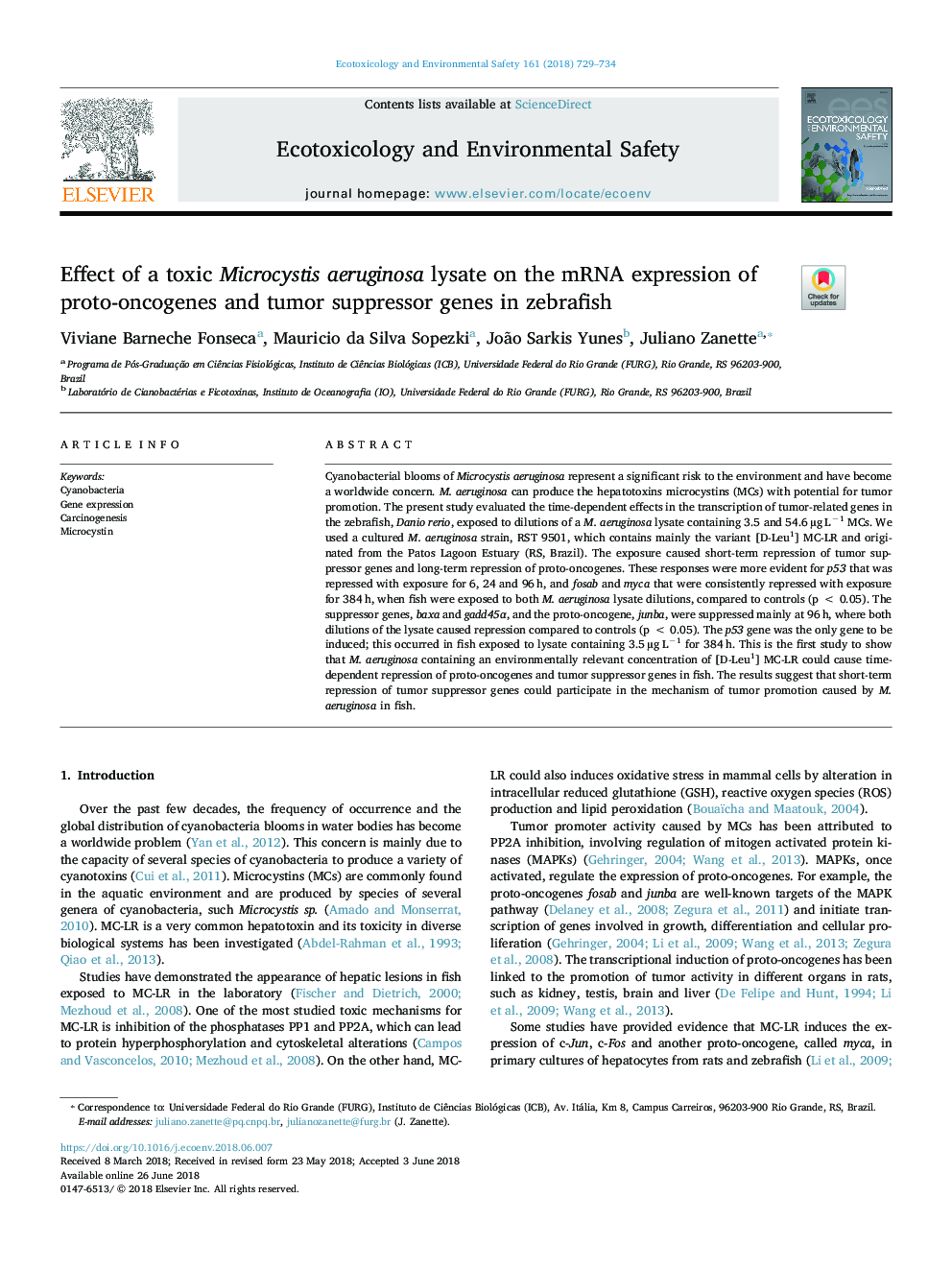| Article ID | Journal | Published Year | Pages | File Type |
|---|---|---|---|---|
| 8853598 | Ecotoxicology and Environmental Safety | 2018 | 6 Pages |
Abstract
Cyanobacterial blooms of Microcystis aeruginosa represent a significant risk to the environment and have become a worldwide concern. M. aeruginosa can produce the hepatotoxins microcystins (MCs) with potential for tumor promotion. The present study evaluated the time-dependent effects in the transcription of tumor-related genes in the zebrafish, Danio rerio, exposed to dilutions of a M. aeruginosa lysate containing 3.5 and 54.6â¯Âµgâ¯Lâ1 MCs. We used a cultured M. aeruginosa strain, RST 9501, which contains mainly the variant [D-Leu1] MC-LR and originated from the Patos Lagoon Estuary (RS, Brazil). The exposure caused short-term repression of tumor suppressor genes and long-term repression of proto-oncogenes. These responses were more evident for p53 that was repressed with exposure for 6, 24 and 96â¯h, and fosab and myca that were consistently repressed with exposure for 384â¯h, when fish were exposed to both M. aeruginosa lysate dilutions, compared to controls (pâ¯<â¯0.05). The suppressor genes, baxa and gadd45α, and the proto-oncogene, junba, were suppressed mainly at 96â¯h, where both dilutions of the lysate caused repression compared to controls (pâ¯<â¯0.05). The p53 gene was the only gene to be induced; this occurred in fish exposed to lysate containing 3.5â¯Âµgâ¯Lâ1 for 384â¯h. This is the first study to show that M. aeruginosa containing an environmentally relevant concentration of [D-Leu1] MC-LR could cause time-dependent repression of proto-oncogenes and tumor suppressor genes in fish. The results suggest that short-term repression of tumor suppressor genes could participate in the mechanism of tumor promotion caused by M. aeruginosa in fish.
Related Topics
Life Sciences
Environmental Science
Environmental Chemistry
Authors
Viviane Barneche Fonseca, Mauricio da Silva Sopezki, João Sarkis Yunes, Juliano Zanette,
